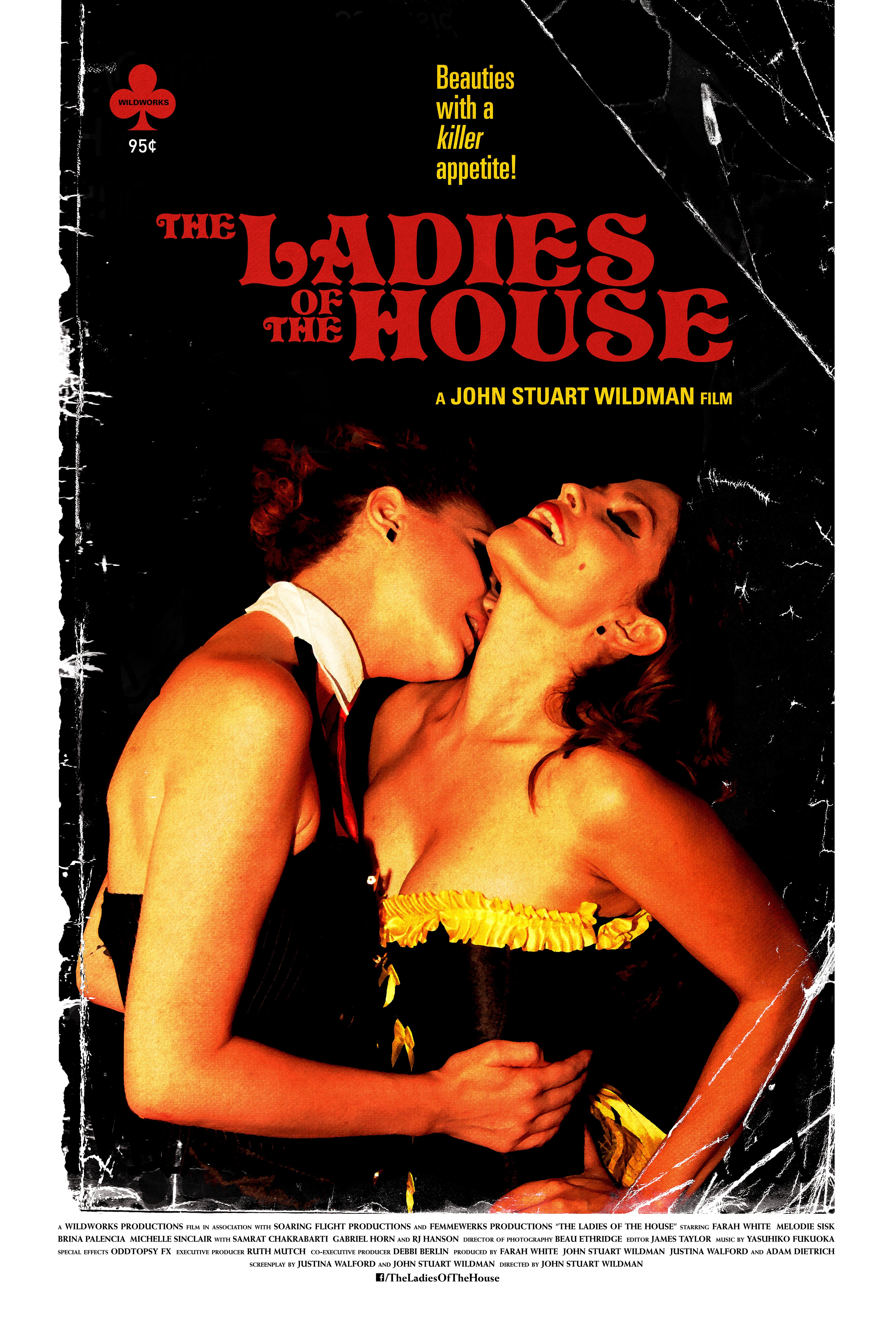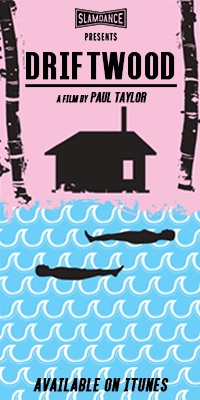In early 2011, Iranian filmmaker was barely known in the United States except to a select group of foreign film cinephiles, despite having directed four previous films.
His 2009 film About Elly won a number of festival prizes including the Tribeca Film Festival’s jury award for Best Narrative Film, yet it wasn’t actually released theatrically in the U.S. until six years later. His previous film, 2006’s Fireworks Wednesday, was just released last year, ten years after a short run on the festival circuit.
Probably the biggest turning point for the filmmaker was when his 2011 film A Separation premiered at the Berlin Film Festival where it won five top prizes, including the Golden Bear. Over the course of the next year, the film played almost every major festival and started racking up prizes before finally winning the Oscar for Foreign Language film, Farhadi’s screenplay also being nominated.
Farhadi’s new film, The Salesman, is a return to his home country after changing locales with his previous film The Past. It’s another tightly-written dramatic character study of married actors Emad and Rana (Shahab Hosseini,Taraneh Alidoosti) performing in a staging of Arthur Miller’s “The Death of a Salesman,” whose building is condemned after an earthquake, forcing them to find new lodging. Their new apartment comes with a sordid past that leads to an incident that ends up causing a rift in their marriage as Emad feels the need to get justice for his wife.
Festworks sat down with Farhadi at the Cohen Media offices in New York last year to discuss the film with the aid of a translator.
Festworks: It’s been a couple years since “A Separation” and you did “The Past” in between, so before we get to this movie, what inspired you to make a movie in France before coming back?
Asghar Farhadi: After the success of “A Separation” and all the things that were going around it and all the trips that I had, I thought that I had to get involved in another film right away. At the time, I had a story that was coming from the memory of a friend of mine. I had a friend who told me that he has go to Canada, because he has to get an official divorce where his wife was living for many years. When he came back, I asked him what happened and he said I lived in the house of that woman for three weeks where I hadn’t been for years. I asked him what he was talking about these three weeks, and he said that all they were talking about was the past. I thought it was a very interesting situation to make a movie about that, and that’s why the movie was happening outside Iran, because the story was forcing you to go out of Iran.
Festworks: What was the inspiration to do “The Salesman” and do you keep a lot of ideas in a notebook where you can go back to when you’re ready to write something new?
Farhadi: It’s not as clear as having a notebook or something, but there’s always a couple ideas in my head competing with each other. The idea that when you go to sleep and it doesn’t let you sleep, that’s the idea that you have to make a movie about. I was always trying to make this story but there was something hollow that I couldn’t find. There was something I was always thinking about that wasn’t there. When I figured out that my main characters are the theater actors, they filled up that hollowness. It was like there was a huge jigsaw puzzle piece that “Death of the Salesman” played and it filled up the whole movie.
Festworks: It’s interesting you compare it to a jigsaw puzzle, because I feel the whole movie is like that. We see the play, we know they’re actors and their building is falling down. There are all these elements, and you wonder, “Where is this going?” You know where it’s going but you have a lot of things happening in their lives. It’s not just one story.
Farhadi: But the whole construction of this story is like theater. It’s not like movies where it goes from one point and goes to another point. The graphic of it is that there’s something in the middle that’s going around it and around it, and this is something that is in theater. In plays, there’s usually a situation and characters are talking about that condition over and over again. The biggest thing that was tempting me into doing this story was putting this play into this story, the fact that the development of my characters being part of the play they were acting in. The other thing was how the border between theater and real life vanishes. It was interesting to me that somebody acting as Willy Loman and trying to get empathy from the audience, and in real life, he meets an Iranian version of Willy Loman.
Festworks: You mentioned the play structure, and movie generally tend to go for a three-act structure, or at least that’s common. “The Salesman” is interesting because there’s a third act where they meet, but it doesn’t seem like there’s not as clearly a delineated first or second act. When you’re writing something like that, do you just know the third act and where you have to get the characters?
Farhadi: I think that maybe it’s not very clear but the three acts are there as well. The first act is when they’re leaving that house and doing the play and just their lives, the second act is when that incident happens and makes their life chaotic and the third act is when that old man walks into that empty house. Even timing wise, they are exactly the same length, but it’s very hidden. The audience shouldn’t be able to see that.
Festworks: I realize that with all your movies but noticed it especially with this one, the intensity of the emotions are kept very level and calm except for a couple spikes, but it’s more like real life where we don’t have these huge dramatic moments as much. Is that something you’re doing very intentionally?
Farhadi: I feel like they have the kind of life where although they have some problems, their life is very smooth and calm, generally. At some point, something happens in their life, like as if a stone is thrown in a river and it’s a ripple effect and everything is chaotic now. As an audience, we have the same distress, because like them, we don’t know what’s happening or what’s going on. We are as curious as the main characters: What happened and why is it happening? This goes higher and higher until the last moment, and this is based on the pattern of Aristotle in Greek drama.
Festworks: I want to go back to the Arthur Miller play for a second. How is that play seen in Iran? Is it fairly well known? Is it controversial? Obviously, in New York, they’re performing Arthur Miller on Broadway every other month.
Farhadi: It’s very, very well known in Iran. There are lots of translations of his play and the last translation of Arthur Miller’s “Death of a Salesman” when this movie came out became the bestseller in Iran. People who are in theater, they know it very well. Maybe it’s because it’s about the family relationships, and they really understand those relationships. I saw a performance of it last year. It had been on stage many, many times.
Festworks: But to have that as the centerpiece of your movie, you have to put on a production of the play. You had to create a set and costumes just for the play. Was that done very separate from the rest of the movie?
Farhadi: Actually, doing these plays in Iran is very easy. The only problem is the costumes on the women. They don’t really look at the content, the censorship is not about the content. The censorship is more towards Iranian plays then foreign plays. For example, if you want to do “Death of a Salesman,” of course that woman who is in the hotel, she can’t be naked.
Festworks: How has it been making movies in Iran and dealing with the censorship? You’ve been doing it for a long time now, so has it improved at all? Does it get any easier?
Farhadi: If a filmmaker from the U.S., for example, goes to Iran and wants to make a film, it’s very hard. I don’t think they can. It’s very complex for them to understand it, but because we’re born there, we know how to move around and find our own way, and that’s actually why Iranian cinema has its own specific language.
Festworks: But other Iranian filmmakers have had problems getting their films made there. You’ve never faced that on any of your movies?
Farhadi: It’s a very ridiculous and paradoxical situation really. For example, they’ve told a specific filmmaker not to make any movies anymore, and lawfully, he can’t do it, and now he’s actually making more movies in this period. Sometimes for us it’s even funny, it’s like a joke. It’s really like the weather here. They told us last night that it was going to be sunny here, but it’s now raining. It depends when you give them your movie. If it’s sunny, everything goes smoothly; if it’s raining, you don’t know what’s happening.
Festworks: Wow. So it’s all about timing.
Farhadi: That, and you have to be smart enough to go step-by-step forward. I think that Iranian filmmakers were always smarter than the system of censorship, but with all these problems, it was very hard to make movies, but they still made their own films.
Festworks: Was there anything about “The Salesman” that was questionable with the censorship board, even with “the incident”?
Farhadi: They mentioned a couple of issues to me, and I said that if you want to change this, I’m not going to release the film. It was important for them to release the film, and without any changes, they released the film.
Festworks: I imagine when you’re making your film, they’re not on set watching the whole time …
(At this point, the filmmaker beams with a smile as if we have discovered a secret he’d been keeping.)
Farhadi: No. (laughs) They don’t come to the set at all. You just have to give them your script and they read it, and usually, it’s not that you give them the whole script. You give them some three or four page treatment, although it’s really on the filmmaker as well. I always give them a three-page treatment, and I usually try to write things that are just the plot of the film. They read it and they ask for more details, and I say that I haven’t written it yet, and they say “okay” and I go and I make my film. When the movie’s over, they go and review the film again, but the funny thing is that the committee that watched the film was not the same committee that read the script, so you can make another film. (laughs)
Festworks: It’s a lot like the MPAA here. You show them the movie then they ask for changes and sometimes, filmmakers make the changes and sometimes they just say they’ve made the changes.
Farhadi: But there were sometimes where there were movies where they had huge issues and it was blocked.
Festworks: One of the nice things that came out because of “A Separation” is that your other movies have slowly been getting released here—“About Elly” and “Fireworks Wednesday” for instance. Do you see a lot of Iranian films that you feel would be worth getting seen over here?
Farhadi: Iranian cinema is a little bit different from 10-20 years ago. There were more good movies back then, then now. I feel like everywhere in the world is the same that in the past, there were more good films then now. There are so many good films in Iran that are unknown to the outside. For example, in “The Salesman,” the teacher screens a movie, a black and white old film, it’s called “The Cow,” and at the Chicago Film Festival, it got Best Actor 50 years ago, but nobody’s seen it and nobody knows about it. Maybe in France or New York, but most people, no.
Festworks: Do you ever feel like you could be helping to get those films seen here?
Farhadi: Whenever I have the opportunity, I try to talk about the good movies being made in Iran and are unknown outside. I try to talk about them.
Festworks: Are you going back to your Spanish film next?
Farhadi: Yeah, I will start that in the summer I think.
The Salesman will open in New York and Los Angeles on Friday, January 27, with plans to roll out into other cities over the course of February.











READER COMMENTS